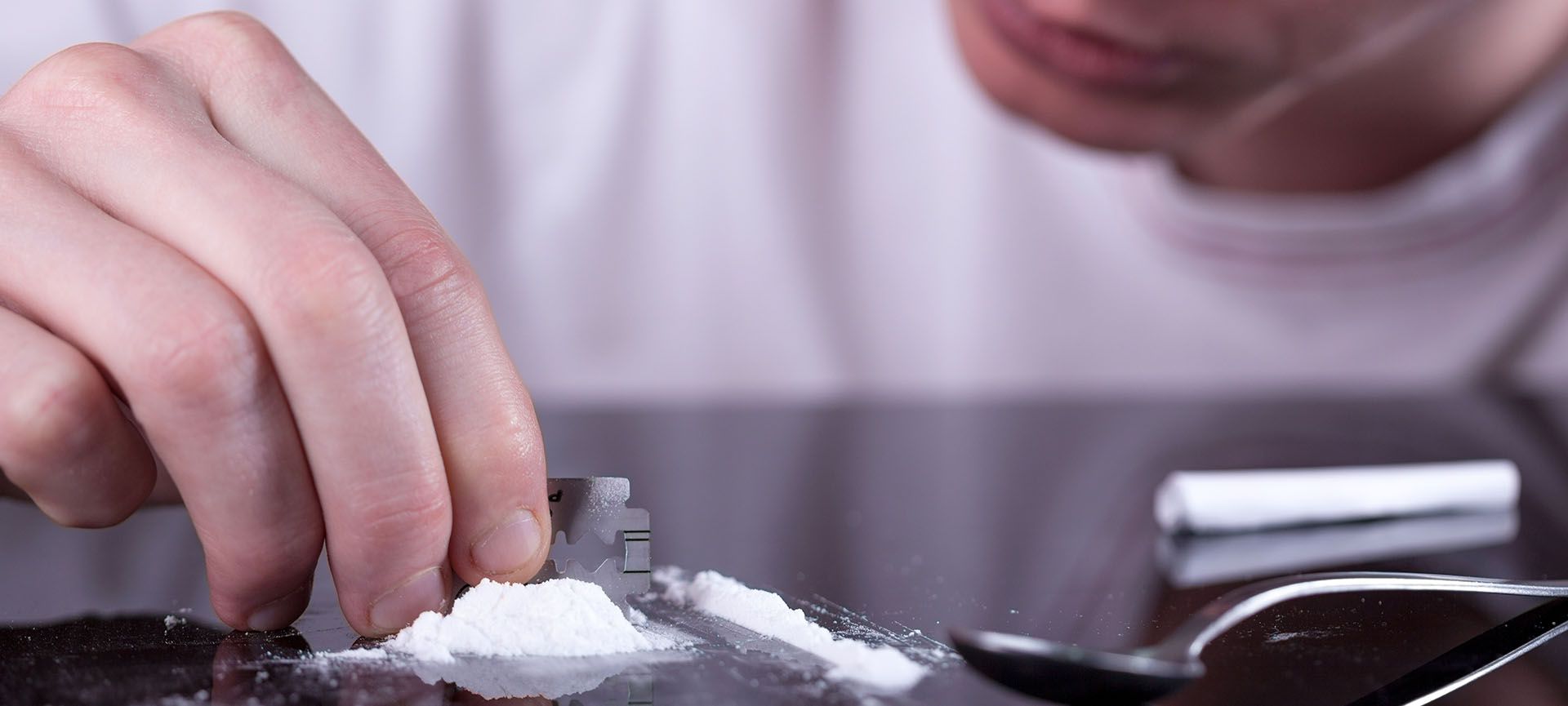
Cocaine Addiction and Dopamine
Addiction changes how we think, feel, and behave by disrupting neurotransmission, which is the process of communication between neurons (nerve cells) in our brain. There have been many studies conducted during the past several years that highlight how drug dependence and cocaine addiction are the results of an organic brain disorder caused by drugs’ cumulative effects on neurotransmission.
The brain is our most complex organ, and it is the front and centre of all human activity. It is designed to learn and help us drive a vehicle, enjoy a meal, or play a musical instrument. It is one of the most fascinating elements of life to exist in this world. We know from research that cocaine addiction involves surges of chemical signalling compounds including the body’s natural opioids (endorphins) and other neurotransmitters like dopamine.
What We Know About Cocaine
Cocaine is a stimulant drug made from the leaves of the coca plant and is one of the world’s most addictive drugs. You might know it as “blow,” “coke,” “crack,” “rock,” or “snow.” It’s a fine white powder that can be snorted up the nose, injected into the veins, or smoked. When first consumed, cocaine causes a sudden rush through the mind and body.
When individuals are high on cocaine, they may feel alert, energetic, and unshakeable. But it isn’t long before users are left experiencing cocaine comedown, which can leave them feeling paranoid, irritable, depressed, foggy-brained, shaky, and exhausted. While cocaine’s effects on the body can be harsh, what cocaine does to the brain is equally, if not more, damaging. Even a small amount of cocaine can lead to developing an addiction, and the need to start recovery.
What Cocaine Addiction Does to the Brain
The first way cocaine affects your brain is by disrupting the production of neurotransmitters, the brain’s chemical messengers. Neurotransmitters carry, boost, and balance signals between cells in our body. Dopamine, a “feel-good” neurotransmitter, signals our emotional responses, especially pleasure. Normally, the brain releases dopamine when we exercise, meditate, get a massage, have sex, eat good food, and listen to music we enjoy. When we do those things, small doses of dopamine travel through our brain cells and send messages of joy, amusement, and satisfaction.
But when you use cocaine, dopamine floods your brain. There’s so much of the chemical floating around that it doesn’t have anywhere to go. This surge of dopamine is what makes you feel high and euphoric. But your brain quickly becomes accustomed to these abnormal levels of dopamine. High levels of dopamine build up and over-activate receiving cells in the brain. When this happens, normal levels of dopamine aren’t enough to produce the same pleasurable effects. Cocaine addiction also throws off the brain’s balance by suppressing other neurotransmitters, including:
- Norepinephrine, which enhances memory
- Serotonin, which keeps obsessive thoughts and compulsive behaviour in check
Dopamine plays a role in several of our pathways and plays a vital part in a range of body systems and functions that include movement, sleep, learning, attention, memory, and mood. Dopamine is an essential chemical in our brain, and playing with the levels by ingesting drugs can cause long-term and undesirable side effects.
What is Dopamine’s Role in Cocaine Addiction?
Dopamine is involved in drug reinforcement, but its role in cocaine addiction is less clear. The reinforcing effects of drugs are associated with significant and fast increases in extracellular dopamine, which mimic those induced by physiological dopamine cell firing but are more intense and protracted. The increase in knowledge has led to more complex models of drug addiction and more effective recovery programs. Brain chemistry is altered positively when you start addiction treatment.
Brain imaging techniques have been a contributing factor to these new understandings. Dopamine controls the thoughts and actions of individuals addicted to drugs and alcohol. Cocaine, stimulants, alcohol, and heroin increase the dopamine output in one way or another and alter the way it functions.
Short-term use produces the same reward and pleasure for almost everyone, but the difference in short-term users is that functions will return to normal quickly.
For those with a cocaine addiction, though, the long-term effects cause changes in the brain that are much more permanent. Cocaine is now required to produce pleasure and happiness because the mind can’t do so on its own. This can lead to cravings and a deepening addiction.
Those who use drugs may mention that they need drugs or alcohol to feel normal, which is an accurate description of their feelings. It is difficult for those who are not struggling with cocaine addiction to understand because they have probably never dealt with this.
Cocaine exposure will sensitise or desensitise the brain depending on what other substances the individual uses. It is the direct result of developing a tolerance to the substance, meaning the person requires much more of the drug to achieve its desired effects.
Long-term abuse of these substances hijacks our ability to control emotions, motivation, and mood. Continued use will place the standard flow of dopamine under stress, causing disruptions in mood, motivation, and the ability to function effectively. The user will need to get high to continue functioning at a high level and this will lead to cocaine addiction.
How Does Cocaine Addiction Harm Dopamine Receptors?
Many drugs can influence dopamine by increasing the amount released or decreasing the amount removed. Several addictive substances, including opioids, alcohol, nicotine, amphetamines, and cocaine involve an increase in dopamine levels in the brain. Some drugs can physically damage dopamine receptors, which can lead to long-term issues.
Drugs that flood the brain with dopamine over and over can inundate your dopamine receptors with the chemical messenger, overwhelming and damaging them over time. Damaged dopamine receptors can contribute to drug tolerance. Because there are fewer working receptors, your brain will be less sensitive to the drug’s effects. This will lead to you needing to consume more.
It may also be harder to experience pleasure from natural dopamine sources, such as exercise and other enjoyable activities. Damaged receptors can also lead to depression and a condition called anhedonia, which causes you to be unable to feel pleasure. However, these conditions are often temporary, as long as substance use issues are addressed.
In recovery you will learn how you can safely return your dopamine levels to their pre-addiction baseline.
How Long Does It Take for Dopamine Receptors to Recover?
If some drugs can cause damage to dopamine receptors, can dopamine receptors heal? How long does it take for dopamine receptors to recover? There is no definitive answer to these questions.
Cocaine addiction is a complex disease, and its effects on the brain can vary depending on several factors. There are some questions to ask, however, if you want to get a better idea of how long it could take to restore dopamine levels.
They include:
- How long has the person been using drugs?
- Which drugs are being used? What kinds of drugs are they?
- What is the user’s standard dose?
- How old is the user?
- Are they using multiple substances at the same time (polysubstance abuse)?
- Did they have dopamine deficiency before use?
- Do they struggle with depression or another mental health disorder?
If someone is a long-term alcohol or cocaine abuser, most addiction treatment specialists agree that it could take around 90 days to have levels return to where they were before using. Unfortunately, drugs such as cocaine complicate these answers, and for heavy users, it could take an entire year before they resume normal dopamine functions.
Does Cocaine Deplete Dopamine?
In more severe cases, recovering cocaine users may never return to normal dopamine levels because of how the drug depletes the chemical in the upregulation process.
Unfortunately, this could make someone fall into relapse, knowing they never feel normal again without the cocaine. Fortunately, there are treatment centres equipped to deal with these severe cases of cocaine addiction. They can help you overcome these problems and lead a healthy and normal life.
Cocaine Addiction Treatment
Most people are not able to stop abusing cocaine on their own, but a 12-step program or other support group will help. Those suffering from addiction need medical supervision in order to withdraw from cocaine safely and comfortably. Which option is best for you depends on how much cocaine you’ve been taking, how long you’ve had a problem, the stability of your living situation, and other health issues you may have.
The first step is to consult your primary care doctor or GP. Your physician can evaluate your cocaine abuse patterns, diagnose any co-occurring disorders, assess your overall health, and offer treatment referrals. They may even be able to prescribe medication to help you quit.
Addiction Treatment Options
| Residential treatment involves living at a treatment facility while undergoing intensive treatment during the day. Residential treatment normally lasts for 30-90 days. |
| Partial hospitalisation is for people who require ongoing medical monitoring but have a stable living situation. These treatment programs usually meet at the hospital for 3-5 days a week, 4-6 hours per day.
Intensive outpatient programs (IOP) focus on relapse prevention and can often be scheduled around work or school. Therapy (individual, group, or family) can help you identify the root causes of your cocaine use, repair your relationships, learn healthier coping skills, and deal with triggers that could cause you to relapse. |
Cocaine Addiction Treatment Tips
There’s no magic bullet or single treatment that works for everyone. Each person’s needs are different, so it’s important that you find a program that feels right for you. Any addiction treatment program should be customised to your unique problems and situation.
Treatment should address more than just your cocaine abuse. Addiction affects your whole life, including your relationships, career, health, and psychological well-being. Treatment success depends on examining the way cocaine addiction has impacted you, and developing a new way of living.
Commitment and follow-through are key. Recovering from cocaine addiction is not a quick and easy process. In general, the longer and more intense the cocaine use, the longer and more intense the treatment you’ll need. But regardless of the addiction treatment program’s length in weeks or months, long-term follow-up care is crucial to your recovery.
Get treatment for other medical or mental health issues. People often abuse cocaine to ease the symptoms of an undiagnosed mental health problem, such as depression or anxiety. As you seek help for cocaine addiction, it’s also important to get treatment for any other psychological issues you’re experiencing. Your best chance of recovery is by getting combined mental health and addiction treatment from the same provider or team.
Getting Help
If you or someone you know is struggling with a cocaine use disorder, reach out to Thousand Islands Rehab Centre. Our addiction treatment specialists will create a program that is tailored to your unique needs and circumstances, to support you through detox, rehab, and aftercare. You are a phone call or click away from a better life and the ability to be happy without needing cocaine.




